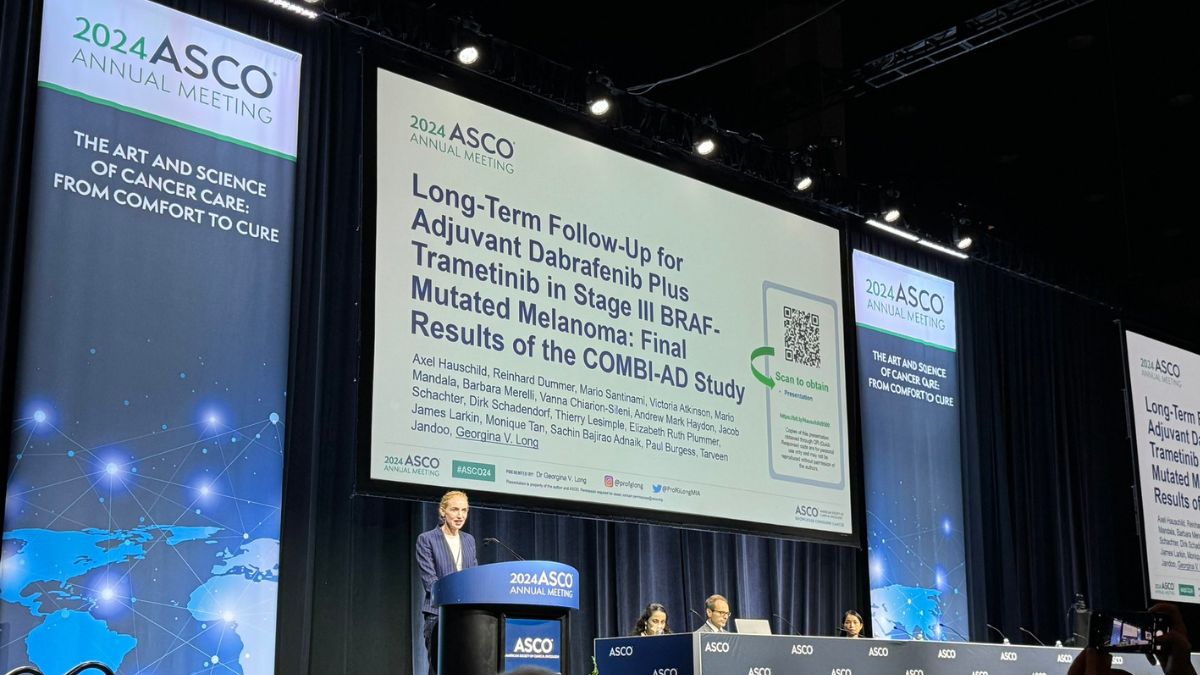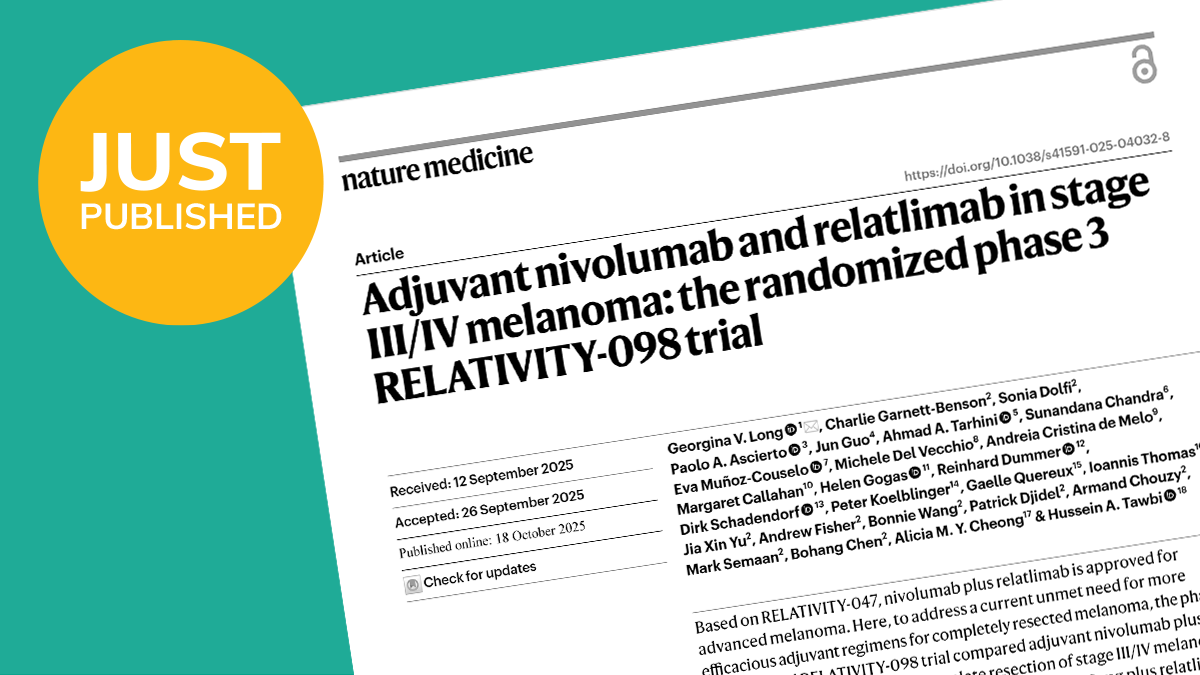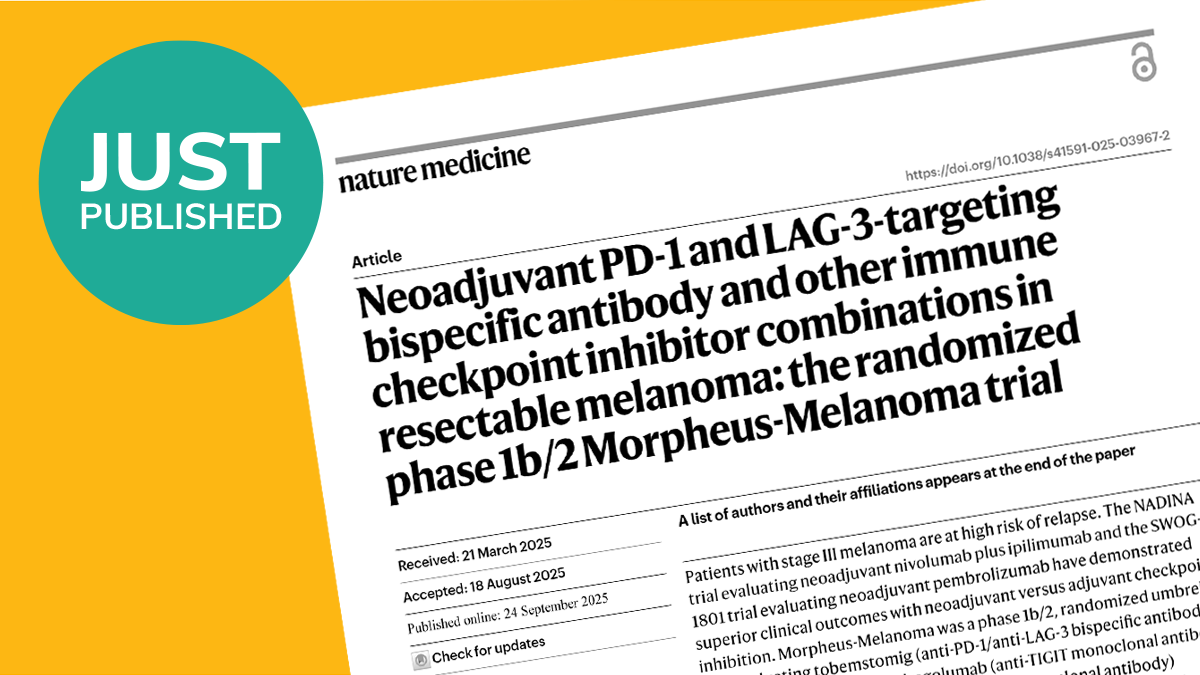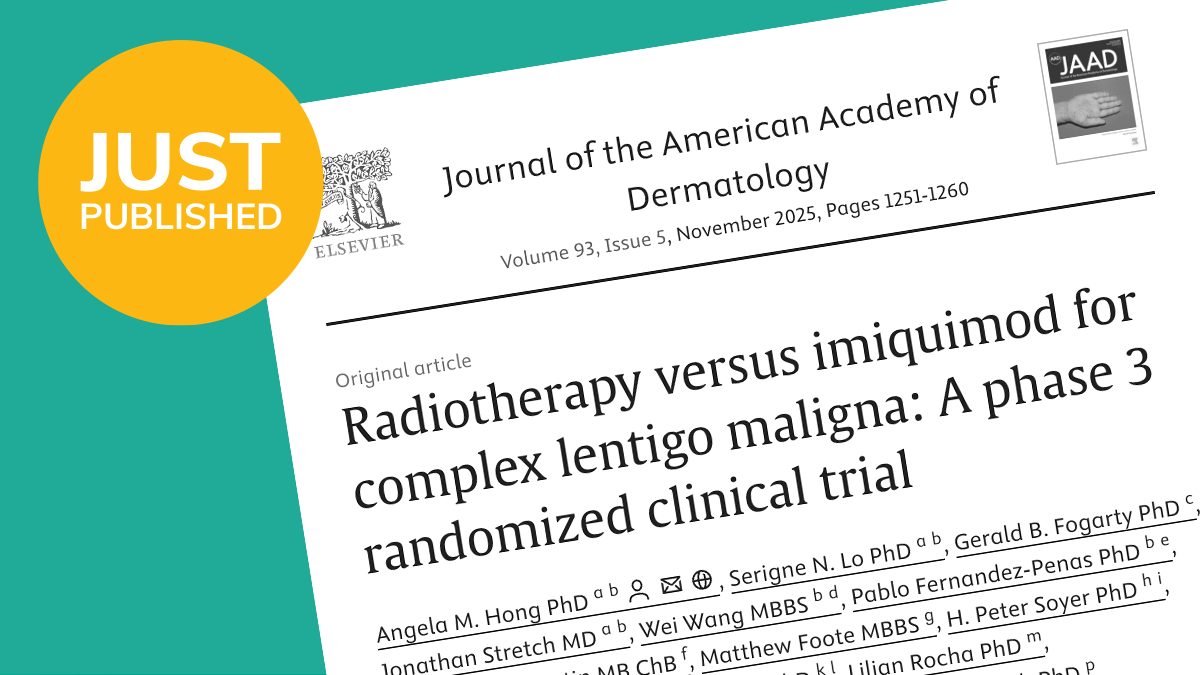Final results of the COMBI-AD clinical trial, published in New England Journal of Medicine, show significant benefit in preventing disease progression in BRAF positive Stage III melanoma patients.
Final results of the COMBI-AD clinical trial, published overnight in the prestigious New England Journal of Medicine, show 12 months of targeted drug therapy after complete lymph node dissection to have significant benefit in preventing disease progression in BRAF positive Stage III melanoma patients.
Internationally, Melanoma Institute Australia was one of the biggest contributors of patients to the COMBI-AD trial, which tested targeted therapies which block the genetic mutations within a cancer cell that cause it to grow and spread.
Around 40% of patients with melanoma have a BRAF mutation which can be blocked by giving BRAF and MEK inhibitor drugs. These drugs have been shown to be effective for patients with advanced melanoma.
The COMBI-AD trial aimed to determine whether giving a BRAF inhibitor (dabrafenib) and MEK inhibitor (trametinib) to Stage III patients for 12 months after they had complete lymph node dissection would prevent their melanoma recurring and becoming Stage IV.
MIA Co-Medical Director and joint 2024 Australian of the Year Professor Georgina Long AO detailed the final COMBI-AD results at the recent American Society of Clinical Oncology (ASCO) Annual Meeting in Chicago.
In her oral presentation, she revealed that in the dabrafenib plus trametinib arm, the 10-year rate for relapse-free survival was 48%, and for distant metastases-free survival was 63% (compared with 32% and 48% respectively in the placebo arms). The first and final analysis for overall survival was also presented, and dabrafenib plus trametinib reduced the risk of death by 20%. This was reduced even more in those with the BRAF V600E mutation in their melanoma, by 25%,
‘This long term follow up data shows significant benefit to be maintained at nearly 10-years, and is likely to be one of the only adjuvant trials in melanoma to show a difference in the overall survival with the use of adjuvant drug therapy,’ Professor Long said. ‘This confirms the impact of dabrafenib and trametinib as a standard therapy in resected stage III melanoma, especially for patients with the BRAF V600E mutation,’ she said.
Also released at ASCO and published in the NEJM were the practice-changing results of the NADINA clinical trial, which showed drug therapy before surgery to be effective in preventing disease progression in high risk Stage III melanoma patients.
Professor Long led the Australian arm of the NADINA trial which was opened at eight centres around the country.
‘Both the COMBI-AD and NADINA trials have been critical in transforming melanoma clinical care, and we are proud that Melanoma Institute Australia and our patients have played a leading role in both trials,’ Professor Long said.
‘To have both papers published recently in the prestigious New England Journal of Medicine shows MIA’s global impact in continuing to push science and medicine forward.’





